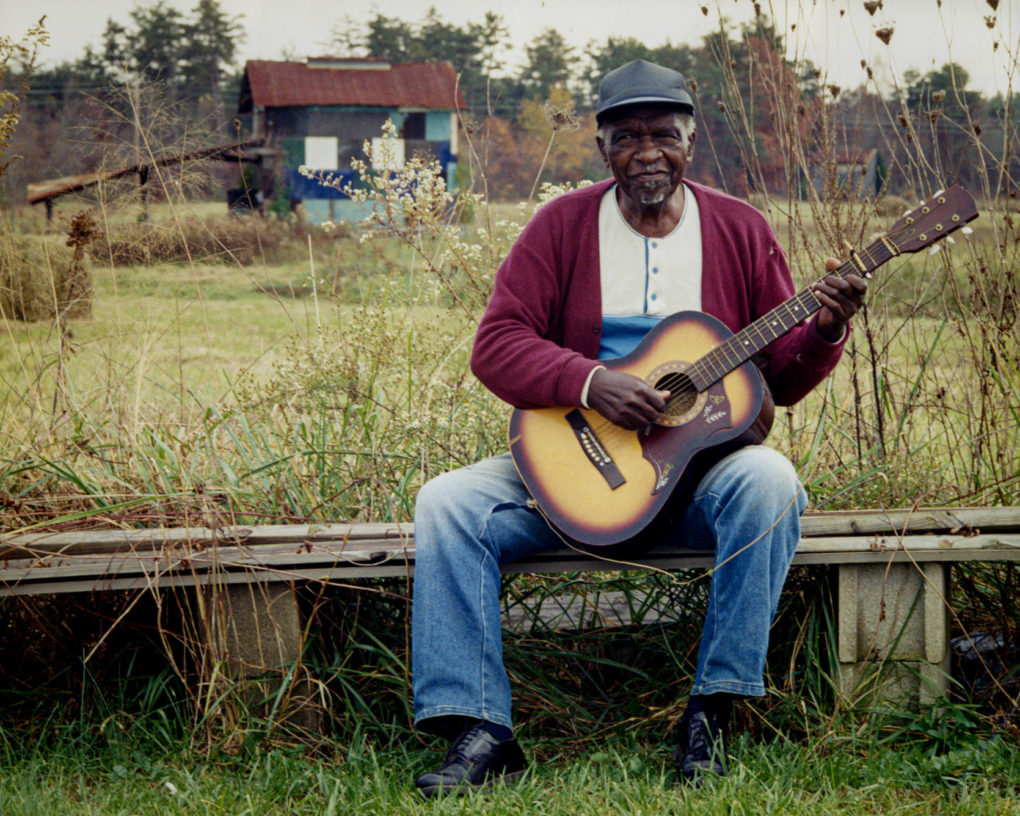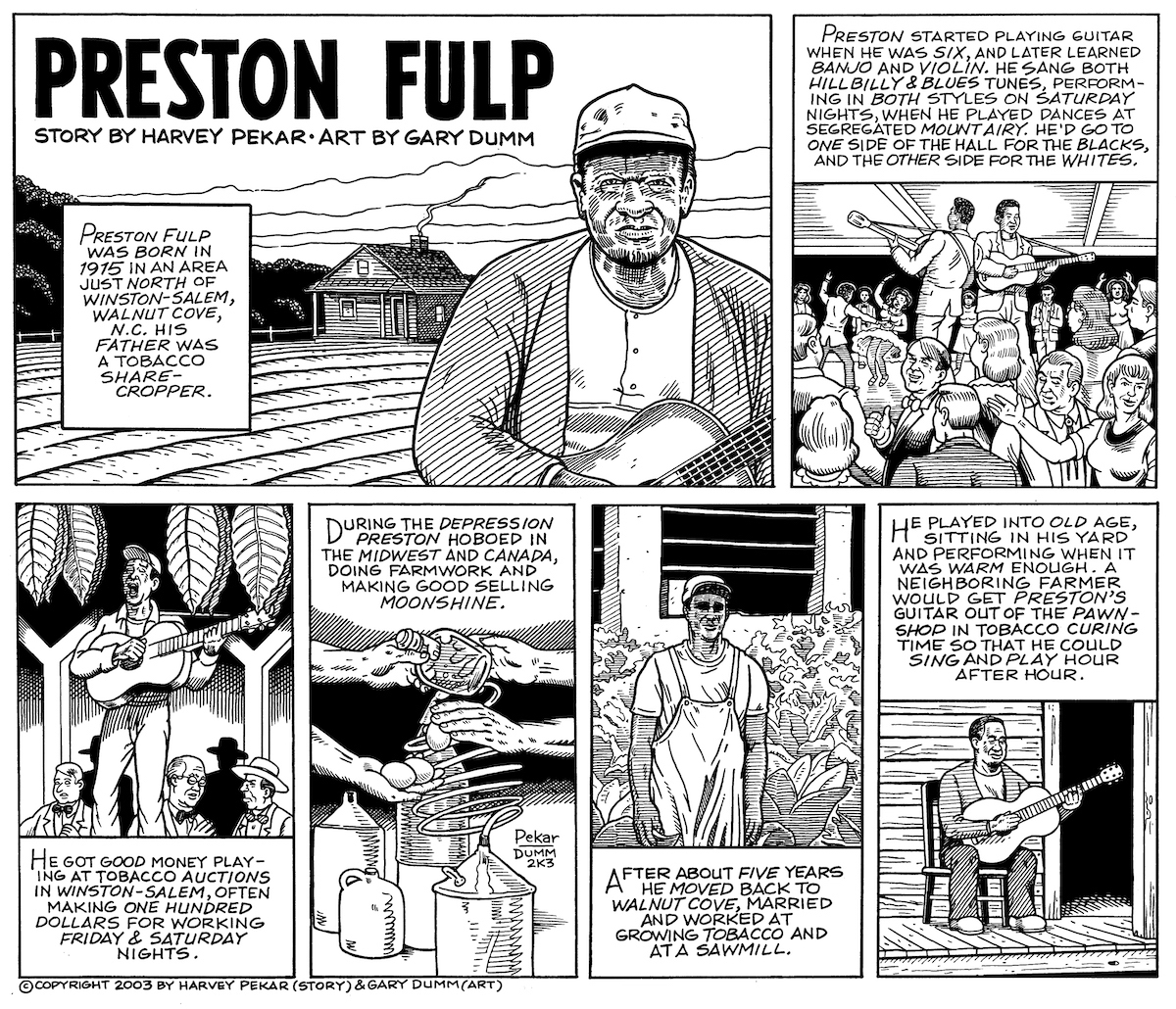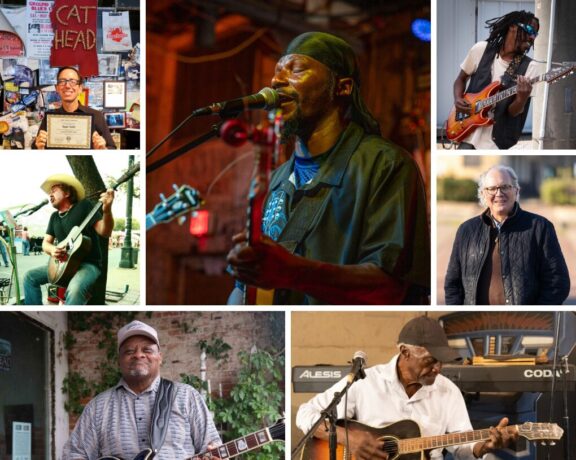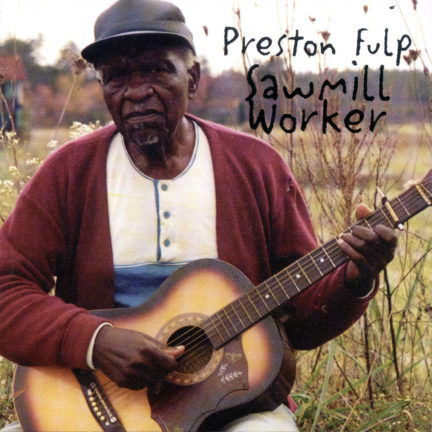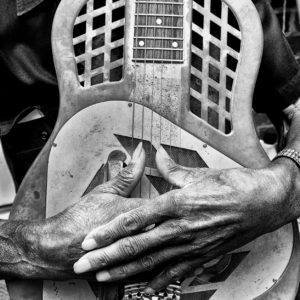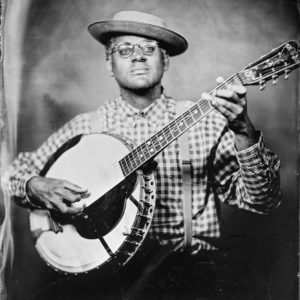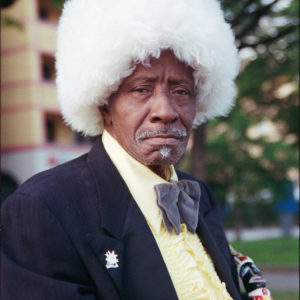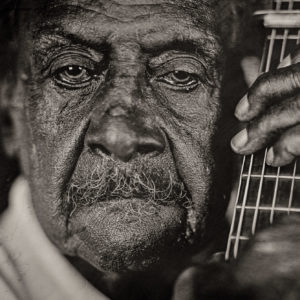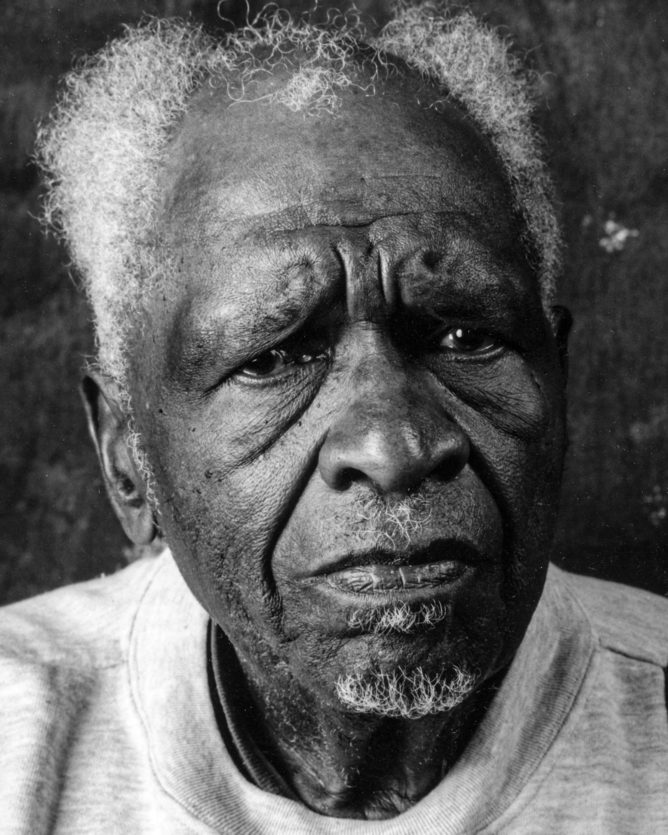
Preston Fulp
BluesWhat made Preston Fulp distinctive was that he was equally skilled at playing music from the Black blues tradition and the white country-music tradition. He played the guitar, the violin and the banjo, signing blues and hillbilly songs.
When we first met Guitar Gabriel in Winston-Salem, North Carolina, he enjoyed having us drive him around to visit old musician friends. One day we drove up to Walnut Cove, about 20 miles outside of town. Gabe’s method was to stop by a grocery store or a little gas station and ask where the Black people lived because he knew that once he found the neighborhood, he could find the musician he was looking for. Thus, when we arrived in a Black neighborhood in Walnut Cove, Gabe knocked on the first door he saw and asked, “Where’s Preston Fulp live?” That’s how Music Maker’s relationship with Preston began.
What made Preston distinctive was that he was equally skilled at playing music from the Black blues tradition and the white country-music tradition. Preston, born in 1915, took to music at an early age, starting to play the guitar when he was 6. By his teens, he was proficient on the violin and banjo and was a singer of both blues and hillbilly songs. He played blues with local musicians such as Wheeler Bailey and Arthur Anderson. At the same time, he was playing hillbilly music with Ernest Thompson and Vernon Covenant and listening to 78 records by the Carter Family and Uncle Dave Macon.
Soon, he was performing in both styles on Saturdays at corn shuckings, chicken stews, and barn dances. He once told us the story of a dance hall he played regularly in Mount Airy. The areas where Black people and white people danced were segregated, and Preston would move from one side to the other, playing blues for the Black folks and mountain music for the white folks.
Preston often played at tobacco auctions in Winston-Salem. Every autumn, the streets would fill with barkers, moonshiners, soapbox, preachers, medicine men and musicians, all hawking their goods, their ideas, or their sounds. Preston would work all week at the sawmill And make less than $5, but when he performed at the auction houses all night Friday and Saturday, he could come home with $100.
Preston Fulp was born in 1915. He died in October of 1993.
Top photo by Tim Duffy.
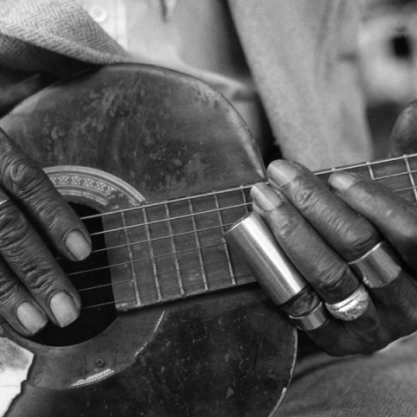
Get involved
& give back
The Music Maker Foundation is a 501(c)(3) nonprofit organization that depends on thousands of supporters. Together, we work to meet the day-to-day needs of the artists who create traditional American music, ensure their voices are heard, and give all people access to our nation’s hidden musical treasures. Please contribute or shop our store today.
